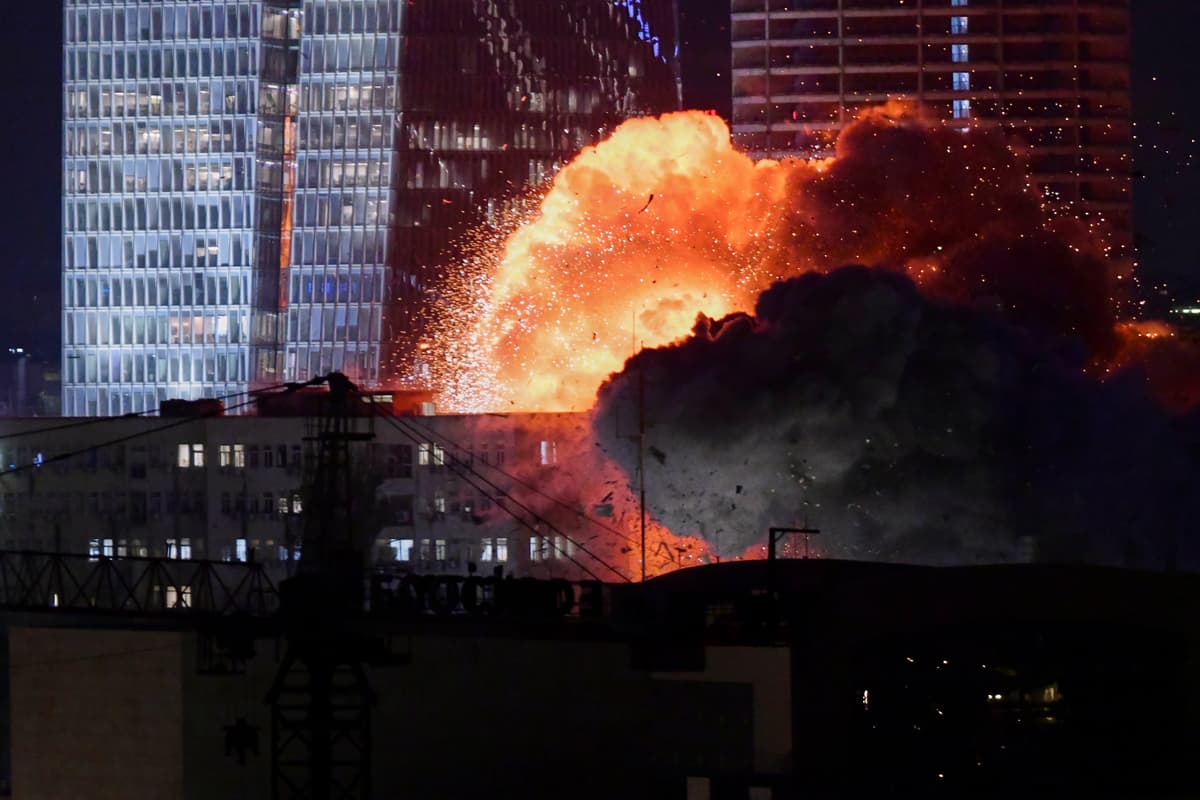Can America Still Strike a Deal With Iran?

Recent Israeli airstrikes against Iran have raised questions about the future of diplomacy between the U.S. and Iran.
The recent Israeli airstrikes, dubbed Operation Rising Lion, have significantly escalated tensions in the region. The operation targeted military and nuclear installations in Tehran, including the Natanz uranium enrichment complex. Israeli Prime Minister Netanyahu justified the strikes, claiming Iran was on the brink of developing nuclear weapons and that 'never means never' when it comes to Tehran's nuclear ambitions. The attacks, which struck multiple military bases and residential areas, prompted Iran to declare a state of emergency.
The strikes have sparked debate over their impact on potential diplomacy. Ambassador Mark Wallace believes the strikes underscore a credible military threat against Iran, which could facilitate diplomacy. However, not everyone agrees. Iran's government condemned the operation as a violation of sovereignty and vowed retaliation.
The Trump administration has sought to maintain pressure on Iran for a deal but clarified that the U.S. did not endorse the Israeli strikes. President Trump warned that an Israeli operation could derail fragile negotiations. Some experts predict that diplomacy may be off the table until Iran retaliates, while others argue that the strikes could set back Iran's nuclear program significantly.
The U.S. has evacuated non-essential personnel from embassies in Iraq and restricted government travel to Israel, citing potential retaliation. Despite the challenges, President Trump remains hopeful for a deal, urging Iran to act before it's too late.
The International Atomic Energy Agency has warned about Iran's uranium enrichment levels, which Tehran claims are for peaceful purposes. The future of negotiations remains uncertain, with experts cautioning that Iran may rebuild its nuclear capabilities underground.
The strikes have also highlighted differing approaches between the U.S. and Israel on the Iranian nuclear issue. While the U.S. urged restraint, Israel acted independently. Some experts believe this could strain U.S.-Israel relations, though others argue the relationship remains strong. Ambassador Wallace contends that the U.S.-Israel alliance is 'ironclad' and that the strikes demonstrate the U.S. commitment to its words.
In summary, the situation remains volatile, with diplomacy in limbo and the region bracing for potential retaliation. The outcome of these events will have far-reaching implications for U.S.-Iran relations and regional stability.
